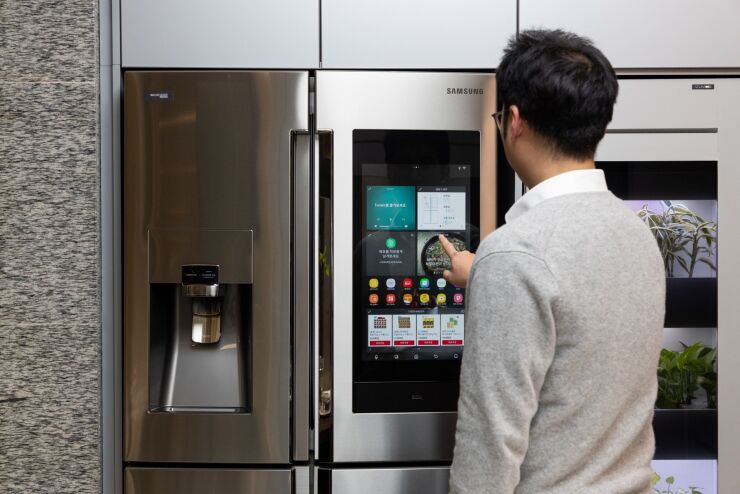
Citizens Financial Group was early to the buy now/pay later party in the U.S., and as consumer technology has evolved, so has its approach to the market.
Through a partnership with Apple, the Providence, Rhode Island, company has offered installment loans for iPhones since 2015, well before BNPL was both a buzzword for consumers and a flashpoint for regulators and investors. Today, consumers are upgrading their devices more aggressively — even their home appliances — and creating new categories for the bank to target with its loans.
"Tech has a shelf life, and those who are heavy users of technology are often looking to replace their devices," said Christine Roberts, an executive vice president who leads Citizens Pay, a role she assumed in late 2022. "Financing technology is a great way to pay over time."
In an effort to increase consumers' ability to access point-of-sale finance quickly and gain more insight into their financial position, the $227 billion-asset Citizens plans to issue a virtual card in the coming months that will allow users to finance multiple purchases while sticking to the BNPL model.
In the current environment, banks may have an advantage when offering BNPL lending. As regulated companies, banks have a greater grasp of risk management and credit, which is crucial in any lending, according to Richard Crone, a payments consultant.
"The banking industry's secret weapon here could be Early Warning," Crone said of the firm that operates Zelle, the bank-led payment transfer service which plans to launch a
Consumers will be approved for a certain amount, such as $5,000. That line of credit can fund an installment purchas, and be paid back under terms based on the partnership between the bank and the merchant. The difference between the virtual card and a credit card is the virtual card payments are for specific purchases over a set period of time at a dedicated merchant, rather than a monthly balance that accumulates over the course of months or years.
"This tells the consumer: 'You have made a $1,200 purchase out of that $5,000, and here is how it will be paid back over 12 months, and here is what you have left that can be used for other purchases,'" Roberts said. "It's more than just the back of a monthly statement."
Citizens Pay is working with merchant partners on the virtual card project and said more details will be available at the time of launch later this spring.
The bank offers its
Refrigerators are a common example. Modern, web-connected refrigerators are
"That's different from the old slide-handle refrigerators from the 1940s, which you would still see in the 1970s," Roberts said. "What we're doing is serializing technology. You can pay down a computer purchase over time, and then be ready to purchase another computer."
In point-of-sale financing, Citizens is competing against
"We are a
BNPL is a debt product at its heart, and debt products are what banks do, said James Wester, co-head of payments for Javelin Strategy & Research. "New BNPL players may have access to consumers at the point of purchase, which is not a small advantage, but where banks may have an advantage in the longer term, and this is becoming clearer as regulators are taking a harder look at BNPL, is in areas like risk and compliance," Wester said.
BNPL firms have seen their
There are signs some of these firms may be on the
The regulatory and economic pressure on BNPL lenders could give banks an opportunity to get more aggressive in reaching out to BNPL's growing consumer base. BNPL's global yearly gross merchandise volume is expected to grow to $2.3 trillion by 2028 from $462 billion in 2022, according to
In terms of debt risk, the state of the market has shifted the BNPL provider landscape towards banks and other regulated lenders that have robust credit decisioning and reporting models, according to Yaacov Martin, co-founder and CEO of Jifiti, a technology company that provides tools for installment lending among its business lines.
"When merchants offer BNPL options from these types of regulated lenders, there is a mitigation of risk and an added layer of protection for the consumer," Martin said.






